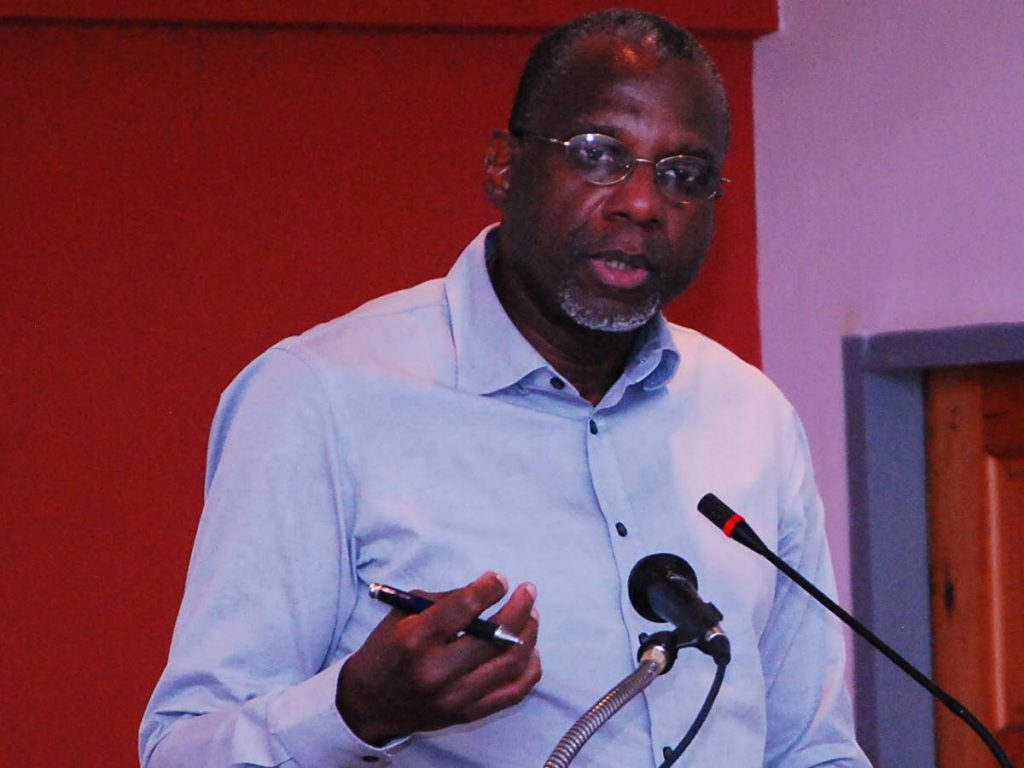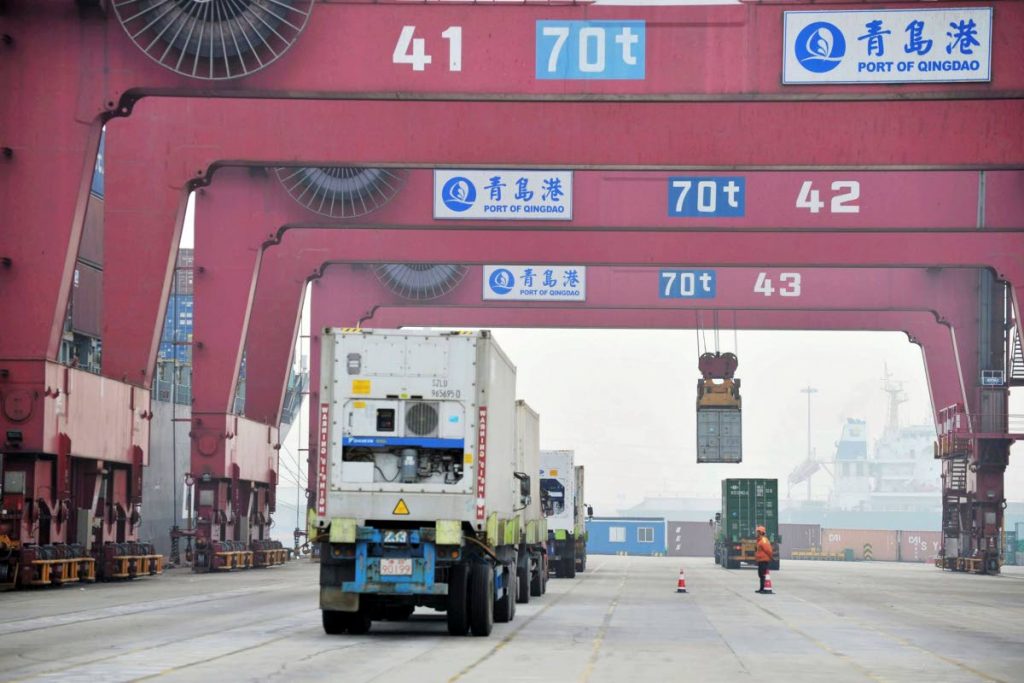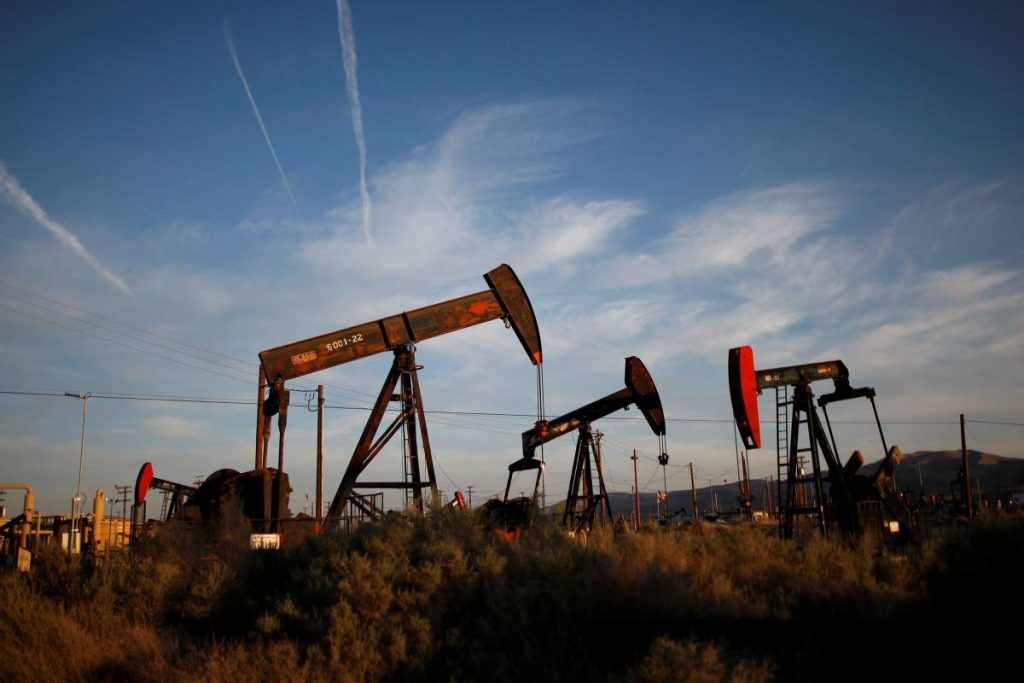Can US recovery boost local economy?

It’s said that when the United States sneezes the rest of the world catches a cold, but with the US and global economy on a record recovery, setting records the likes of which have not been seen since after the global economic meltdown of 2008-2009, economist Dr Terrence Farrell says this country will not benefit unless TT can get oil and gas production "back up to the level of five, seven years ago.”
Farrell noted there would be additional demands because of the Mitsubishi plant and other projects. He said what was also needed is “prices recovering at a level that would then stabilise both the fiscal situation and the balance of payments. So you have to look at both of those circumstances to determine whether or not, or the extent to which, or the timing of any recovery in TT.”
Farrell made the comments during a recent interview with Business Day.
His reference to the Mitsubishi plant resulted from the US$1 billion methanol and dimethyl ether (DME) plant being built by Japan’s Mitsubishi Group at the Union Industrial Estate in La Brea. The project is owned by Caribbean Gas Chemical, a joint venture formed by Mitsubishi Gas Chemical Co; Mitsubishi Corp; Mitsubishi Heavy Industries; state-owned National Gas Company (NGC) and local conglomerate,Massy Holdings.
The developers expect to produce 1 million tonnes of methanol a year as well as 20,000 tonnes annually of DME, a super-clean, environmentally friendly fuel which is cheaper than diesel and is being promoted as a replacement for diesel. It can be used by diesel-powered vehicles without the need for modifications to engines. The plant is expected to be completed in June this year, with start-up scheduled for October.
Farrell said while the current economic upswing in the United States is the longest on record, it may not necessarily see a recovery in TT. He said, “We have had situations before where our economy is not in sync with what is happening in the rest of the world. The rest of the world could be booming and we could be in decline.”
He added, “Usually upswings don’t last as long as this one has and this upswing also has been characterised by somewhat lower levels of growth than normal. So there’s something very unusual about what is happening.”
He recalled that outgoing chairman of the US Federal Reserve Janet Yellen recently suggested that they could not quite make sense of what was going on. He said, “There has been extremely low inflation, and there has been very little wage growth, wages have essentially stagnated both in Europe and in the US…which is unusual in a situation where you have both low inflation and very low levels of unemployment. And so therefore I think that at this point in time a lot of economists are quite frankly puzzled by what is going on and why it is happening.”
He said people also need to be careful about looking at the world stock markets for guidance about what is happening in the economy as a whole, although the stock market has traditionally been seen as a reliable forecaster of the future. He said the stock markets are driven by a “different set of considerations,” although they are driven by what is happening in the mainstream economy and by people’s expectations as to what is likely to happen. “And, of course, when you look at the stock markets you also see that the technology stocks, the stocks like Facebook, Amazon, Apple, Netflix and Google are all doing extremely well. Which I think is telling you that there is something happening in the technology space that is beginning to influence what is happening in the rest of the economy.”
He said since the stock markets are generally “forward-looking,” the current record-breaking upswing means that most of the investors in the stock market are expecting earnings to continue to increase. “What is the basis for that expectation is always a matter of speculation. Different investors will have different views as to why this is happening.”
He said among the explanations proffered in some quarters is “the Trump Rally.” However, Farrell said the so-called Trump Rally narrative is not persuasive because the upswing was going on long before Trump was elected.

He said China is expected to experience lower growth of some five to seven per cent in the future, compared to nine to ten per cent, “and we have to look at what are the implications of a slower-growing China for the world economy. It is the second largest economy in the world and therefore that too can have some implications for what is going on. The situation is really quite fluid and difficult to predict what is in fact going to happen.”
In a paper titled Giddy Markets and Grim Politics, Kenneth Rogoff, professor of economics and public policy at Harvard University and former chief economist at the International Monetary Fund (IMF). said, “Economic growth worldwide picked up in 2017, and the best guess is that the global economy will perform strongly in 2018 as well. At the same time, a rising tide of populism and authoritarianism poses a risk to the stable democratic institutions that underlie long-term growth. And yet headlines seeming to portend political instability and chaos have not prevented stock markets from soaring. What gives?”
Rogoff said the largest single factor in the current global upswing is that the world economy is finally beginning to recover from the 2008 financial crisis and partly pay back for years of weak demand. He added, “The rebound is not over, with business investment finally picking up after a decade of slack, thereby laying a foundation for faster growth and higher productivity gains in the future.” He said while economic growth in China is slowing, many other emerging economies, particularly India, are set to grow faster this year. “But while politics is not, at least for now, impeding global growth nearly as much as one might have thought, the long-run costs of political upheaval could be far more serious.”
Senior economist at the St Augustine campus of the University of the West Indies (UWI) Dr Roger Hosein said the increase in economic activity in the US and the rest of the world, which has seen an increased expectation by the International Monetary Fund (IMF) for global economic growth for 2018 as opposed to 2017, is likely to have a favourable impact on commodity prices including those exported by TT.
However, he said this expectation must be tempered by the realities associated with the natural gas and crude oil markets, “in that as the price of crude oil increases on the global market, we have seen that the US and, of late, Argentina and China will bring more crude oil onto the market and therefore the global supply of crude oil will be kept substantially in balance at or around the current price levels. So I do not expect, for example, crude oil to cross US$100. It may fluctuate between $50 and even $70.
"But I do not expect a significant rise above those prices, simply because there is a supply dynamic associated with every price increase that could control the price or that could bring the price to a lower level.”
Hosein said one of the reasons for the rapid growth of the US economy is the shale oil empire, an industry that has been booming significantly in the US and has reduced the cost of fuel imports to the US, which has now become an exporter of fuel, including liquefied natural gas (LNG) to various parts of the world. He said this development “has invigorated the US economy by creating a…more reliable source of cheaper domestic energy. which in turn would have helped to sprout linkage industries in the US to grow.”

He expects the TT economy will only see a marginal improvement due to the improvement in crude oil prices over the last nine months.
“Let us not fool ourselves: the TT economy is in a very troubled state. and what we need is a significant, pronounced, change in the price of oil to bail us out.
"That will not happen and therefore changes in the economic fortunes of the TT economy have to come from the supply side. We have to orient an increase in production of non-energy-sector export revenues through manufacturing, through our agricultural sector, through our tourism sector, through our downstream petrochemical sector. We also have to trim the way we manage the economy in terms of government expenditure to be leaner, meaner and more efficient, and therefore as the economy moves forward it would take careful, crafty management for economic growth of a substantive, real form to return.”
Prakash Dhanraj, a director at Development Finance Holdings Ltd, attributes the stellar economic performance in the US economy to the perception that President Trump is a capitalist out to profiteer and that he is pro-business.
Pointing to Trump’s campaign slogan, Make America Great Again, Dhanraj said “and the business sector is the sector to do it. So all the people in the business sector say ‘That man thinks just like us, so we know that at least for the next three-four years everything that he does will be in support of business, so now is the time to invest and now is the time to get our tax breaks and now is the time…As compared to Barack Obama in his eight years (who) was for the man on the ground. And the man on the ground said, 'Those businesspeople are making too much money.'”
He said in the aftermath of the tax cut arising from the recent tax legislation in the US, the recipients of pay “increases” spend the extra money, which is interpreted as increased consumer confidence. “They then start doing surveys and people say that the Make America Great Again is working and that feeds back into the press and the press puts it out there and the people feel more confident. All the people who haven’t been spending for the last few years, because they don’t know what the future holds, suddenly see the need for a new car or to remodel their apartments and houses.”
He said all these things fuel business and people get employed and the benefits will trickle down to the mass of the people.


Comments
"Can US recovery boost local economy?"